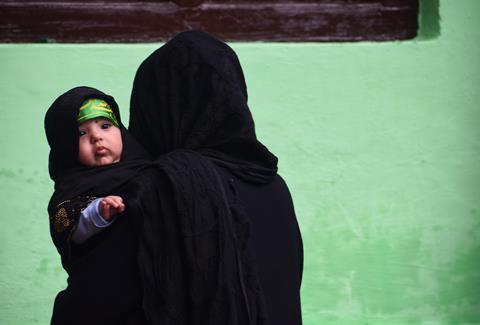Proposals by Iraq’s ultra conservative government to make the law reflect strict Islamic Shia principles would have devastating affects on women’s rights - and lower the age of consent to just nine years old. They must not be allowed to do so, says one Iraqi woman

Working in Erbil, northern Iraq, I get to see firsthand how Iraq’s shifting political landscape is affecting women, girls and other vulnerable groups. Right now, the latest proposals by a conservative coalition of Shia Muslim parties to amend Law 188 are a huge step backward for Iraq.
When it was passed back in 1959, Law 188 was considered one of the most progressive laws in the Middle East. It provided a secular family law system that governed things such as divorce, child custody, inheritance and marriage, no matter what someone’s sex, religion or sect was. Women’s rights were protected and there were safeguards in place to prevent harmful practices like child marriage.
Dangerous changes
Despite this, almost a third of Iraq’s girls marry before the age of 18. And these new proposals would make things worse, shifting the law to reflect strict Islamic Shia principles. The most shocking is the move to lower the legal age for marriage - and consent - to just nine years old. This threatens Iraq’s very social fabric, undermining basic human rights and further inflaming sectarian tensions.
Other changes would make it harder for women to get a divorce or keep custody of their children if they separate and undermine them by limiting their inheritance rights. These changes would be devastating not only for Iraq’s Muslim women but also for religious minorities, including Christians.
Influenced by Iran
The sad reality is that Iraq’s political leadership is being heavily influenced by Iran, which has a theocratic system based on its own interpretation of Shia Islam, and where women’s rights are heavily restricted. In 2023, the death of Mahsa Amini, arrested for not wearing her hijab correctly, sent shockwaves around the world and sparked mass protests. A few weeks ago, Ahoo Daryaei was arrested for protesting strict hijab rules by stripping to her underwear at Tehran university. She has not been seen since.
Iran’s growing influence is reshaping Iraq’s laws and social attitudes, especially when it comes to women’s rights. Every day, we hear reports of women being stopped and questioned by authorities or others – and it’s rarely in a respectful or constructive way. Many women feel powerless, believing there’s nothing they can do to change their situation. But the truth is, they need to be informed about their rights. Women deserve to know that they have the right to stand up for themselves and demand respect and fairness, no matter what the circumstances.
The most shocking is the move to lower the legal age for marriage - and consent - to just nine years old
Even though the proposed changes may not directly affect the legal status of Christians in Iraq, the broader effects on society are deeply concerning. While Christians can marry under church law and have their marriages recognised by the government, this does not cover other areas such as divorce, child custody or inheritance. As a result, Christians find themselves caught in a legal grey area, subject to whatever legal framework is dominant at the time - often an inconsistent and unfair one.
As Christians, we are not just concerned for our own community, but for all the women and girls in Iraq who will be most affected by these legal changes. The international community, especially the United Nations, must hold Iraq accountable for the promises it made when it signed the Universal Declaration of Human Rights. This enshrines equal rights for men and women - including the rights to marry freely, receive an education and to choose their own path in life.
The weakening of women’s rights and the rise of extremist sectarianism will make life even harder for Iraq’s religious minorities, including Christians and Yazidis. We have all seen how fragile the position of religious minorities is in Iraq. Many of us still carry the scars of ISIS’s brutal persecution, and now we face a different kind of threat: the normalisation of gender inequality and sectarianism disguised as “religious law.”
Speaking up
It is essential that the world does not turn a blind eye to these dangerous and regressive changes. Iraq may be ranked 16th on the Open Doors World Watch List of the worst places to be a Christian, but we are not giving up hope. We are committed to staying, despite all the injustice we face.
We must pray for the women and girls who will be most affected by these changes. But we cannot stop there. We need to raise our voices in solidarity with them and demand that Iraq’s government reverses back from this dangerous path.
As Christians, we are not just concerned for our own community, but for all the women and girls
Please pressure your own governments, the UN and international human rights groups to take a strong stand in support of women’s rights in Iraq. We cannot let these rights be stripped away under the guise of religious or political reform.
The fight for the rights of women and girls in Iraq is not just a political issue. As a global Christian community, we have a moral obligation to stand with the voiceless and vulnerable, demanding a future where every woman - no matter her religion or background - can live with freedom, equality and dignity.
































No comments yet